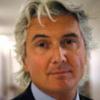A new cancer treatment technology, called NanoKnife, provides a treatment option for cancers that are the most difficult to treat, including those occurring in the liver and pancreas. Over the last twenty years inoperable cancers have been treated using radiofrequency ablation, which in essence uses heat to destroy cancer cells. NanoKnife uses electrical pulses to destroy cancer cells whilst leaving surrounding tissue unaffected.
Professor Edward Leen has pioneered this treatment in the UK and believes that it offers a number of benefits over existing therapies.
He says: “NanoKnife is a safer technique compared with more traditional thermal-based ablative methods. It has a faster recovery time and is much less painful. In addition, it combines well with chemotherapy, which makes it more effective and there is a lower risk of recurrence of the cancer.”
Cancer Research Uk has recently published cancer survival figures that reveal the huge progress that has been made in cancer treatment over the last forty years. However, the survival rates for pancreatic cancer have remained largely the same over this time with only 1% of patients diagnosed surviving for 10 years.The primary reason for this is that it is difficult to detect and diagnse in the early stages when treatment is most likely to be successful.






